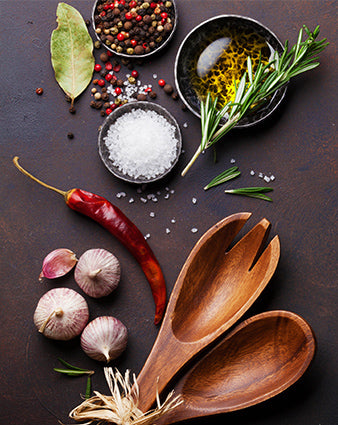10 Ingredients To Enhance Melatonin 💚
Melatonin is a hormone that regulates sleep-wake cycles and is naturally produced by the body. However, certain foods and ingredients can help enhance melatonin production and improve sleep quality. Here are 10 ingredients that may help enhance melatonin:
1. Cherries
Cherries are one of the few food sources of melatonin, a hormone that regulates the body's sleep-wake cycle. Cherries contain a small amount of melatonin naturally, but research suggests that consuming cherries or cherry juice can increase melatonin levels in the body.
It's believed that the specific combination of compounds in cherries, such as anthocyanins and other flavonoids, may play a role in enhancing the body's production of melatonin. These compounds are thought to have antioxidant and anti-inflammatory properties, which can help regulate the body's natural sleep cycle and improve sleep quality.
2. Chamomile Tea 
Chamomile has been used for centuries to help promote relaxation and improve sleep quality. Like cherries, chamomile has also been shown to enhance melatonin production in the body.
One way that chamomile may promotes melatonin is by increasing the availability of tryptophan, an amino acid that is a precursor to serotonin and melatonin. Chamomile contains apigenin, a flavonoid that can bind to specific receptors in the brain, promoting relaxation and reducing anxiety. This can help increase the uptake of tryptophan into the brain, leading to an increase in serotonin and melatonin production.
Additionally, chamomile contains compounds that have antioxidant and anti-inflammatory properties, which can help regulate the body's natural sleep cycle and improve sleep quality. These compounds may also help protect the brain from oxidative stress, which can interfere with melatonin production.
3. Passionflower
Passionflower is an herb that has been used traditionally to help promote relaxation and reduce anxiety. It's also believed to enhance melatonin production in the body, which can help improve sleep quality.
Passionflower enhances melatonin by increasing GABA activity in the brain. GABA is a neurotransmitter that promotes relaxation and helps regulate the sleep-wake cycle. Passionflower contains compounds called flavonoids, which are believed to bind to GABA receptors in the brain, increasing GABA activity and promoting relaxation.
4. Valerian Root
Valerian Root is often used as a natural remedy for insomnia and other sleep disorders. It's believed to enhance melatonin production in the body, which can help improve sleep quality by increasing GABA activity in the brain. Valerian Root can also increase the release of adenosine, a neurotransmitter that is involved in the regulation of sleep and wakefulness.
5. Ashwagandha
Ashwagandha is an adaptogenic herb that has been used in Ayurvedic medicine for centuries to help promote relaxation, reduce stress, and improve sleep quality. While the exact mechanism by which Ashwagandha promotes melatonin production is not fully understood, there is some evidence to suggest that it may enhance the body's natural production of this sleep-regulating hormone.
Ashwagandha promotes melatonin production by reducing cortisol levels in the body. Cortisol is a stress hormone that is released in response to stress and can interfere with the body's natural sleep-wake cycle. Ashwagandha has been shown to have anxiolytic and stress-reducing effects, which can help reduce cortisol levels and promote relaxation, potentially leading to an increase in melatonin production.
6. Ginkgo Biloba
Ginkgo Biloba has been used for centuries to improve cognitive function and circulation. While it's not typically used specifically for sleep or to enhance melatonin production, there is some evidence to suggest that it may indirectly improve sleep quality and possibly enhance melatonin levels.
Ginkgo Biloba could indirectly enhance melatonin is by improving blood flow and oxygenation to the brain. This helps reduce oxidative stress and inflammation in the brain, which in turn helps regulate the body's natural sleep cycle and promote healthy melatonin production.
7. St. John's Wort
St. John's Wort indirectly enhances melatonin by improving mood and reducing anxiety and depression symptoms. Depression and anxiety can interfere with the body's natural sleep-wake cycle and reduce the production of melatonin. By improving mood and reducing anxiety and depression, St. John's Wort may help regulate the body's natural sleep cycle and promote healthy melatonin production.
8. Lavender
Some studies have suggested that lavender may have mild sedative effects, which can promote deeper, more restful sleep. This may in turn enhance melatonin production, as melatonin is typically produced during deep sleep.
9. Lemon Balm
Lemon Balm contains compounds called rosmarinic acid and eugenol, which have been shown to have anti-inflammatory and antioxidant properties. These compounds may help protect the brain from oxidative stress and inflammation, potentially improving sleep quality and enhancing melatonin production.
10. Hops
Hops aren't just for brewing beer! By promoting relaxation and reducing stress and anxiety, hops may help regulate the body's natural sleep cycle and promote healthy melatonin production.








